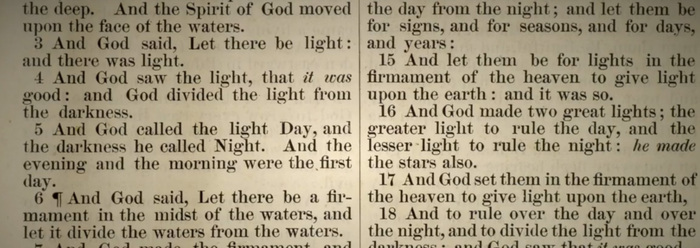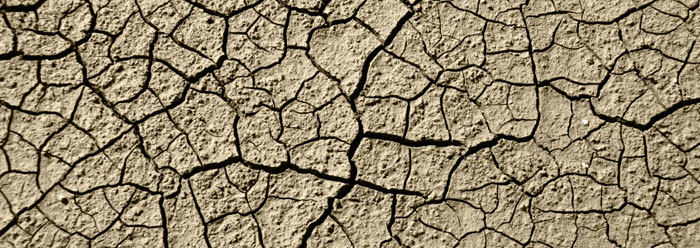Search Tools
New Defender's Study Bible Notes
21:1 new earth. The first two chapters of the Bible describe the first heaven and the first earth in their primeval “very good” created state. Now the last two chapters describe the new heaven and new earth, once again made “very good” by their Creator. Actually the word “new” here is not neos, meaning “novel” or “young,” but kainos, meaning “fresh” or “renewed.” That is, the new earth will be the old earth made new again by purging out all the age-long evidences of sin and the curse, decay, and death. The very “elements” will have been melted and dissolved in fervent heat (II Peter 3:10-12), then all brought together again by the Creator in a perfect world once again. Furthermore, the new heaven and the new earth will “remain before me, saith the LORD” (Isaiah 66:22), “wherein dwelleth righteousness” (II Peter 3:13), and “the former shall not be remembered, nor come into mind” (Isaiah 65:17).
21:1 passed away. Note that Christ’s prophecy, made long before (Matthew 24:35) will finally be fulfilled, the only entity surviving from that previous world being the eternal Word of God (Psalm 119:160).
21:1 no more sea. Evidently there will be no need in the eternal earth for “this great and wide sea” (Psalm 104:25), and all the world will be habitable by human beings. There will still be water, however, for the “pure river of water of life” will flow eternally from the throne of the Lamb (Revelation 22:1). There will also be waters “above the heavens” again (Psalm 148:4,6). The hydrology and meteorology of the new earth and its new atmospheric heaven will be, in many respects, like those of the Edenic world.
21:2 I John. This is the first time that John has identified himself by name since the very beginning (Revelation 1:1, 4, 9) of his message. The scene before his eyes was so magnificent that he must emphasize that he himself was really there observing it.
21:2 new Jerusalem. “The holy city, new Jerusalem,” is the place that Christ has been preparing for His own ever since He returned there after His resurrection (John 14:2-3). It is that city “which hath foundations, whose builder and maker is God” (Hebrews 11:10), that “Jerusalem which is above…the mother of us all” (Galatians 4:26). See also Hebrews 11:16; 12:22-23; 13:14). It will probably be set high in the atmosphere when the Lord brings it with Him at His descent to the air to meet His resurrected and raptured saints (I Thessalonians 4:16-17), and may well remain there as a great satellite orbiting the earth during the tribulation and millennial periods.
21:2 out of heaven. The new Jerusalem is not synonymous with heaven, as many think, for it will come “down from God out of heaven,” and then be established on the new earth, there to remain forever.
21:2 prepared. “Prepared” is the same Greek word as in John 14:2 (“I go to prepare a place for you”), in Hebrews 11:16 (“He hath prepared for them a city”), and in I Corinthians 2:9, “…the things which God hath prepared for them that love Him.”
21:2 bride. The gloriously white city reminds John of a bride coming to her husband, and is even called “the bride, the Lamb’s wife” (Revelation 21:9; see also Revelation 19:7-9; 22:17; Ephesians 5:25-27).
21:3 tabernacle. The ancient tabernacle in the wilderness, where God “dwelt,” and occasionally communicated with His earthly people Israel, was merely a type of the eternal tabernacle, the new Jerusalem, where God will personally dwell forever with all His people from every nation. Compare Leviticus 26:11; Zechariah 2:11. Also remember that when Jesus “tabernacled” among us (John 1:14) in the days of His flesh, He was “Emmanuel,” meaning “God with us,” this also being a type of His future continual dwelling among us (Matthew 1:23).
21:4 all tears. Note Isaiah 25:8-9 and Revelation 7:17. Our tears of sorrow will in that day be turned into tears of joy and thanksgiving.
21:4 any more pain. The four aspects of the primeval curse of Genesis 3:17-19 (sweat, sorrow, pain and death) are specifically removed when God wipes away our tears. This is possible only because the Lord Jesus Christ was made the curse for us (Galatians 3:13). He “in an agony…sweat as it were great drops of blood” as He “carried our sorrows,” then was painfully “wounded for our transgressions” and “bruised for our iniquities.” Finally, He “poured out His soul unto death” (Luke 22:44; Isaiah 53:4-5,12). As the physical aspects of the curse had already been purged (II Peter 3:10), so also will its entire profound spiritual aspects, and “there shall be no more curse” (Revelation 22:3).










